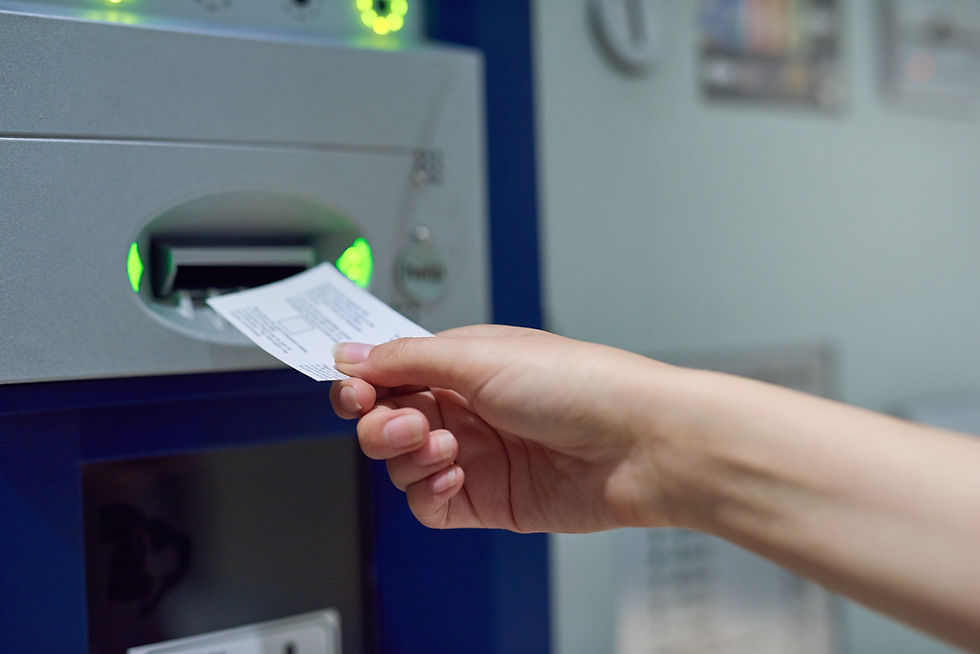Why it’s Time for Cities to Ditch Parking Pay Stations
- Nate Ferraco

- Oct 19, 2023
- 5 min read
Updated: Jan 6, 2025

Parking is often the bane of every driver's existence. Finding out where you can park, how long you can be there, and how to pay for parking can be a nightmare. Ensuring that parkers can solve the public parking puzzle is the city’s responsibility.
When it comes to paying for public parking, one of the most common solutions is pay stations. But are pay stations the most effective technology out there? Are they truly the best at solving the parking payment puzzle?
We'll discuss the problem with pay stations parking and why many municipalities are shifting towards more efficient, user-friendly alternatives. But first, let's take a step back and understand the history of why cities started using pay stations in the first place.
Why Cities use Pay Stations
City parking management has come a long way. Once upon a time, finding a parking spot meant endless circling of city blocks, hoping to stumble upon a vacant space. As cities grew, so did the challenges of managing parking.
The need for organized and efficient parking services became evident. The solution: Pay Stations. These machines allowed drivers to pay for parking time, usually through cash or credit cards, and print out a receipt to display in their vehicles.
Pay stations were convenient ways for parkers to pay without the need for an attendant. This helped to reduce cost and streamline the parking process.
While pay stations were a leap forward in parking management, they had their share of issues. Let’s delve into these problems and why cities are now looking beyond them.
The Problem with Pay Stations
Inconvenience: One of the major drawbacks of pay stations is their inconvenience. Drivers often need to locate a pay station, park their car, walk to the machine, and then return to their vehicle to display the receipt. Perhaps having to run back out multiple times to feed the meter, if they go over the time. This can mean going back and forth to their vehicle or risk getting a ticket. This process can be time-consuming and frustrating.
Maintenance Costs:
Pay stations require regular maintenance to stay in working condition. They can be prone to vandalism, extreme weather conditions, and regular wear and tear. The costs associated with maintenance, repair, and replacement can put a significant strain on city budgets.
Limited Payment Options:
Most pay stations only accept cash or credit cards, leaving out digital wallets and other mobile payment methods that have gained traction in recent years. This can lead to friction and dissatisfaction among users.
Inefficiency:
In scenarios where drivers miscalculate their parking duration or need to extend their time, pay stations may not provide the flexibility needed. This can result in parking violations and fines, which can be a headache for both motorists and city officials.
Environmental Impact:
Old-style pay stations often rely on paper receipts, contributing to unnecessary paper waste. In an age where sustainability is a priority, this is not an ideal solution.
These reasons have led pay stations to feel obsolete. But what alternatives are there to pay stations?
Parking Services and Alternatives to Pay Stations
Mobile Parking Apps:
In the digital age, mobile parking apps have grown in popularity and convenience. They allow users to find available parking spots, pay for parking, and even extend their time remotely. The convenience of these apps cannot be overstated, as they eliminate the need for physical pay stations altogether.
License Plate Recognition (LPR) Systems:
LPR systems are becoming integral to smart parking services. These systems use cameras to recognize license plates and manage parking time accordingly. They remove the need for physical payment stations, offering a seamless experience to drivers.
Smart Meters:
Smart meters, also known as digital parking meters, combine modern technology with parking management. They accept various forms of payment, including mobile apps, credit cards, and cash, making them a versatile choice for cities.
Parking Software:
Parking software is an all-in-one solution for cities. It integrates various technologies to provide a comprehensive parking management system. This software can handle reservations, payments, enforcement, and data analytics, offering a comprehensive solution to city parking challenges.
The Advantages of Parking Software
As we look toward the future of city parking, it's crucial to understand why parking software is emerging as a game-changer. Let's explore the advantages of this innovative solution.
Convenience:
Parking software offers unmatched convenience for drivers. They can locate available parking spots, pay for parking, and even extend their time all with their smartphones. No more searching for pay stations or walking back and forth in search of a machine.
Diverse Payment Options:
Parking software allows users to pay through various methods, including digital wallets, QR codes, credit cards, and cash. This flexibility ensures that drivers can choose the payment method that suits them best.
Real-time Information:
With parking software, drivers can access real-time information about available parking spots. This not only saves time but also reduces the frustration of searching for a vacant spot.
Reduced Maintenance Costs:
Unlike physical pay stations, parking software doesn't require regular maintenance and repair. This significantly reduces the operational costs for cities, making it a more budget-friendly option.
Sustainability:
Parking software contributes to sustainability efforts by eliminating the need for paper receipts and reducing the carbon footprint associated with traditional pay stations.
Data-Driven Decisions:
Parking software collects data on parking usage, allowing cities to make informed decisions about parking management. This data can help in optimizing parking spaces and enforcing regulations more effectively.
As we look at the history of city parking management and the challenges associated with pay stations, it's clear that change is coming. City parking is no longer solely about finding a spot; it's about embracing innovative solutions that make the process more convenient, efficient, and sustainable.
The shift towards parking software and other modern solutions, is proof that our cities are adapting to new technology. While pay stations were a leap forward, it’s now time for another leap. Smart parking software is poised to lead us into the future of city parking.
The advantages of parking software, including convenience, diverse payment options, and reduced maintenance costs, are too compelling to ignore. By embracing these solutions, cities can enhance the quality of life for residents and visitors alike.
In the era of smartphones and digital payments, the use of new technology isn't just a change; it's a transformation. It represents a brighter, more sustainable future for city parking, one where the hassles of yesterday are replaced by the possibilities of tomorrow. As cities continue to evolve, so too must their approach to parking management, and the future has never looked brighter.
Contact iParq to learn more information, or give us a call at (805) 963-9400.



Comments